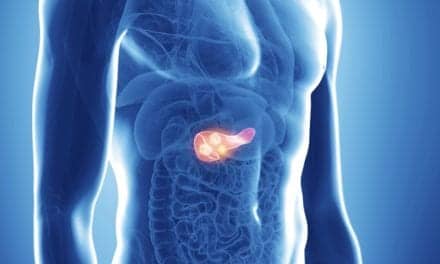The PRECEDE Consortium doubles its enrollment target to 20,000 as it builds a dataset for early detection tool development.
The Pancreatic Cancer Early Detection (PRECEDE) Consortium has enrolled 10,000 participants in its international study focused on individuals at high risk for developing pancreatic cancer.
The milestone, achieved over five years, has prompted the consortium to double its enrollment goal to 20,000 participants. The expanded study aims to accelerate development of early detection tools and improve screening protocols for pancreatic cancer, which has a five-year survival rate of just 13%.
“Reaching the 10,000-participant mark is a historic milestone, but more importantly, it’s proof that collaboration on a global scale can fundamentally change the trajectory of pancreatic cancer,” says Diane M. Simeone, MD, director of Moores Cancer Center at UC San Diego and founding director of the PRECEDE Consortium, in a release. “For too long, survival rates for this disease have stagnated. With PRECEDE’s centralized data, coordinated screening, and worldwide network of clinicians and scientists, we are building the foundation to detect pancreatic cancer earlier, intervene sooner, and save more lives.”
Building Global Dataset for Early Detection
PRECEDE unites more than 60 academic medical centers across the US and internationally, sharing data and insights in real time to accelerate development of early detection tests. The consortium’s model is designed to break down traditional research silos that have historically slowed progress in pancreatic cancer research.
The consortium aims to develop early detection tests that could raise survival rates to 50% within the next decade. Currently, pancreatic cancer remains one of the most difficult cancers to detect early, contributing to its low survival rates.
“When I was diagnosed with pancreatic cancer in 2020, I was fortunate that it was caught early enough for surgery and treatment. That early detection saved my life,” says Jamie Brickell, president of the PRECEDE Foundation’s Board of Directors, in a release. “Too often, patients don’t get that chance. Reaching 10,000 participants and setting our sights on 20,000 proves what’s possible when patients, physicians, and researchers come together.”
Consortium Structure and Goals
PRECEDE is headquartered at Moores Cancer Center at UC San Diego, one of 57 National Cancer Institute-designated cancer centers in the nation. The consortium focuses on individuals at high risk for developing pancreatic cancer and is building what it describes as the world’s largest dataset for this patient population.
The study’s expansion to 20,000 participants is expected to strengthen the consortium’s capacity to develop screening protocols and early detection tools. The collaborative network enables real-time data sharing among participating medical centers worldwide.
The consortium’s mission centers on raising pancreatic cancer survival rates from the current 13% to 50% within the next decade through improved early detection and screening methods.
ID 8424146 © Ashestosky | Dreamstime.com





